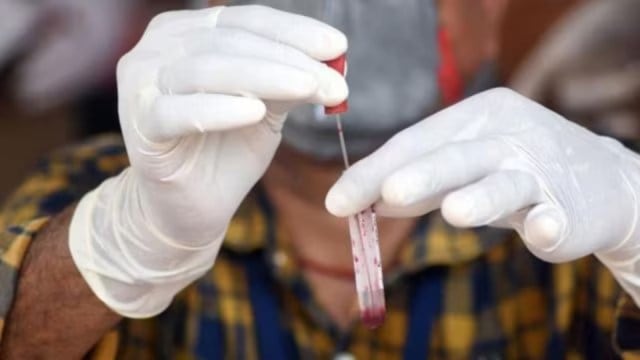Click here to join Express Pune WhatsApp channel and get a curated list of our stories
22 suspected Guillain-Barré Syndrome cases reported in Pune; samples sent to ICMR-NIV
Dr Vaishali Jadhav, Assistant Medical Officer, PMC, confirmed the development and said the civic body will send a team to the affected areas to monitor the situation.
 Doctors suspect that either a bacterial or a viral infection has led to an immunological complication in these patients.
Doctors suspect that either a bacterial or a viral infection has led to an immunological complication in these patients.At least 22 suspected cases of Guillain Barre Syndrome (GBS), a rare neurological disorder, have been reported to the Pune Municipal Corporation largely from the Sinhagad Road area following admission of patients to the intensive care units of Deenanath Mangeshkar Hospital and Poona Hospital, among others.
Dr Vaishali Jadhav, Assistant Medical Officer, PMC, confirmed the development and said the civic body will send a team to the affected areas to monitor the situation. “Presently, we have collected the blood samples of six patients from areas under the PMC and sent them to the Indian Council of Medical Research-National Institute of Virology (ICMR-NIV) for further investigations,” she said.
However, several doctors that The Indian Express spoke to said that, over the past week, they have been seeing patients from Sinhagad Road and surrounding areas coming in with symptoms of loose motions and fever as well as weakness in the limbs. “These patients have been diagnosed with having GBS,” said Dr Sameer Jog, consultant intensivist at Deenanath Mangeshkar Hospital.
Dr Jog said 16 such patients – six paediatric and ten adults – have been admitted to his hospital alone in the last week after they complained of weakness in the limbs. These patients were from areas like Dhayari, Sinhagad Road and Kirkatwadi. Eight of these patients have been put on ventilator support, he said.
Dr Ajit Tambolkar, consulting intensivist at Poona Hospital, said they have three such patients in their ICU. “These patients are from Sinhagad road and Manik Baug,” he said.
Doctors suspect that either a bacterial or a viral infection has led to an immunological complication in these patients. They said GBS is a rare autoimmune disorder that occurs when the immune system mistakenly attacks the peripheral nerves. Intravenous immunoglobulin (IVIG) is the proven effective treatment for GBS.
The World Health Organisation states that GBS can affect the nerves that control muscle movement as well as those that transmit pain, temperature and touch sensations. This can result in muscle weakness, loss of sensation in the legs and/or arms and problems with swallowing or breathing. Most people recover fully from even the most severe GBS cases although some continue to experience weakness for long.
Click here to join Express Pune WhatsApp channel and get a curated list of our stories







